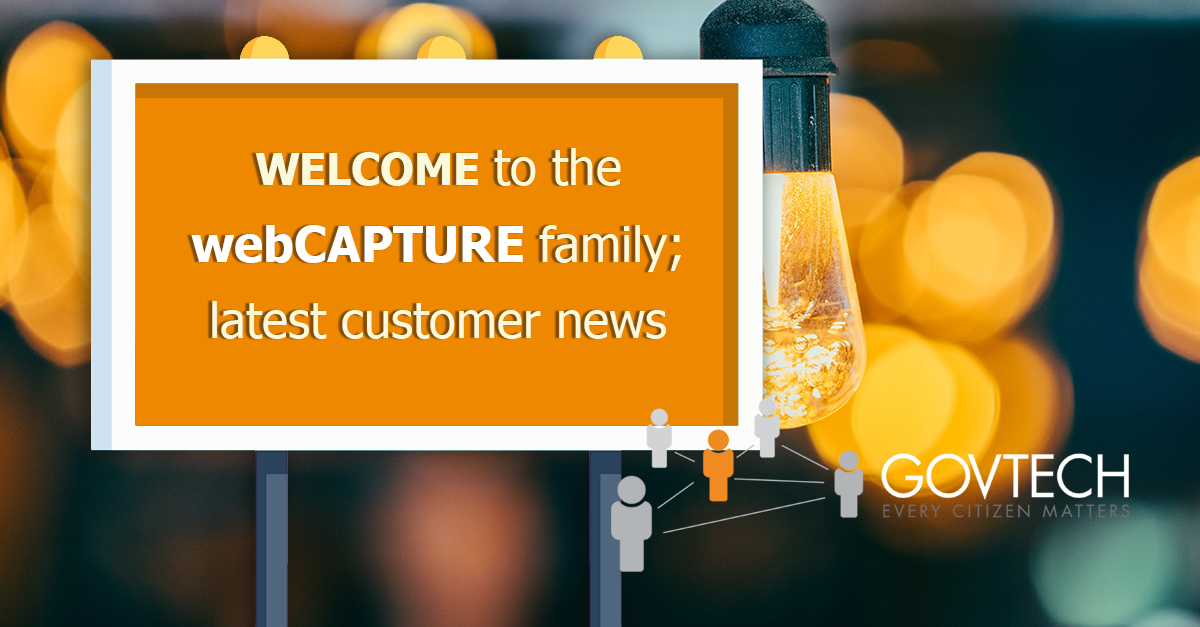Do you think about a company’s culture or organisational fit when choosing a supplier? Can you, should you?
In my almost 32 years of Local Authority experience I am still intrigued to learn how important company culture is to make long lasting relationships with suppliers. If I look back at all the ITTs I worked on, both developing and evaluating, as then as a bidder, they were all designed to be scored against criteria that could differentiate the offerings and be assessed against strict objective measures; this was obviously the essential nature of the tender design and would stand up to scrutiny of rigour and fairness if challenged. But during the process how much did people’s own personal feelings towards a company’s approach or their people still influence their final decision? If it did, is this wrong or inevitable?
My experience is that indeed, on different levels, and with different consequences, people were influenced by personal criteria such as finding bidders to be ‘arrogant’ or ‘presumptive’ in their presentations. I have heard phrases such as ‘I know it’s not relevant but…’ or ‘did anyone else find him/her to be...I’m just saying’. What this told me was that, consciously or unconsciously, people evaluating bids did at some subjective level, imagine what it might ‘feel like’ to engage with a company. In doing so, they were subjectively evaluating the cultural fit of two organisations, either their people or their approach. Predicting what it might be like to work together, or how an on-going contractual relationship might play out in day-to-day reality.
Obviously all organisations, businesses or groups have some form of identifiable traits, hopefully even values or perhaps something that might be described as a ‘culture’. Some may also even have sub-cultures within them as well. At a base level you may say that’s because, fundamentally, they are made up of humans or led by humans. Organisational culture is a fascinating area. Some cultures develop organically…’this is a friendly place to work’, companies can invest great effort – time, money, resources, consultancy, to create or impose a culture on their organisation. This can be manifested in a variety of ways, the physical environment, work-patterns, formal policies, such as metrics used to measure individual, departmental or organisational success. Entire regimes!
Consider these two criteria reporting a measure of improvement:
- A 25% increase in profit from new product development directly attributable to the company’s ‘Open Suggestion Scheme’
- A 25% reduction in staff absenteeism
Both totally valid objective measures of success and not mutually exclusive, but with very different cultural implications. You could analyse both measures/results in many ways. And the journey to achieving them could follow many paths, with positive or negative implications. I remember one organisation I was working with rewarding an employee for not having had a days sick leave in 20 years’ service. Question: Was this employee’s inherent ‘good health’ not reward enough over fellow colleagues who may have suffered unfortunate recurring bouts of ill health? Why was this person’s manager unaware that this period of continuous service was achieved by the employee taking annual leave to undergo knee surgery and recuperation 15 years into his employment? Is sickness associated with a lack of commitment, or a questionable loyalty? What was being ‘rewarded’ by the organisation? Cultural questions.
Organisations have different reasons for wanting to develop a culture. I had an experience with a previous employer when a newly appointed Director told us that as far as they were concerned there were two types of employee, those that were ‘with them’ or ‘against them’. Well that certainly created a culture!
Cultures are developed in a myriad of ways and for a plethora of reasons. Sometimes simply because there is a fundamental belief that a certain culture may increase efficiency or profitability. Earlier I described this area of study as ‘fascinating’ and one example to support this is found when considering that a culture of fear or a culture of independence and self-determination might yield similar results against the above criteria, but with a totally different human physical, emotional and psychological impact.
Have you ever heard these phrases, ‘They’re a dreadful company/department to deal with’, ‘they’re so awful, Oh, I hate dealing with them!’. I have and may have possibly even uttered such phrases myself, and certainly in relation to incumbent suppliers, and at the base of such complaints are these beliefs:
Your engagement will be fruitless; inefficient; expensive; met defensively; unnecessarily formal/bureaucratic; long winded; painful or dissatisfying.
This is simply an expression of how the culture of that body is perceived, and, in my experience, there is often an absolute truth in that, which is why that judgement on the body is expressed by multiple third parties, because it is empirically true based on wide customer experience. It seems to be ‘culturally embedded.’
There are many positive examples as well, even quite altruistic. Sometimes the desire to create a positive culture is not transactional. There is simply a desire to make the experience of work as positive, healthy, and rewarding as it can be. That, I propose, is when we can start to say that positivity is not only in the organisational culture but more deeply, in the organisational DNA. How it gets there, that’s a different blog... or 10!
So, to bite the bullet, what are your customers/suppliers saying about you? Why are they saying it and who determines their ‘cultural experience’ of you, not only who delivers it, but how and why is it experienced in a particular way, and importantly, who are they saying it to?
If you’re lucky, as I am, the answer to the first question above has left you feeling good about your situation. You understand your environment, your group’s reputation, your personal reputation, and you feel good about it.
The good news is that even if you’re not feeling so positive, you have at least acknowledged a deficit, and I sincerely hope that you are in a position to influence the direction of travel. To exploit a cliché, you can’t fix a problem you haven’t found.
In the last 7 years of working for Govtech Solutions, I have engaged with about 50 local authorities across the UK of all sizes. You might imagine there is a degree of repetition in the delivery model considering the small portfolio of services we offer. So what keeps things fresh and challenging? The aspect I find most rewarding and continuously ‘new’ is exactly what I’ve been describing. It’s the interface of the Govtech culture with that of a Local Authority’s culture, and believe me, I can attest to the truth that every authority does have a distinctive ‘personality’. It’s more than the individuals I meet, because all those individuals are working in a context which is impacted by a specific culture. That culture can be set politically, by executive personality, by members, by demography, but I have no doubt that it is both encompassing and inherited in its nature. Once again, a justified use of the adjective ‘fascinating’. Well for me anyway!
What do I bring with me, and what is Govtech’s contribution to the engagement, considering we are, you might say, a constant in the mix? Is it any different to any other supplier? No, not ‘any supplier’, but I think it’s different to most.
It isn’t so simple to say this because it’s ‘consequential’. I believe we bring ‘integrity’. That is expressed in many ways, the guaranteed outcomes we offer, the collaborative approach we take. It is expressed in the on-going relationship we forge. It can be seen in the fact that we don’t seek to ‘monetise’ every interaction with our customers. It’s not how we are incentivised.
And so, if you are the customer, here’s an interesting question from a supplier to you. What do you bring to the table? What are you looking for, a passive or dynamic relationship? Perhaps you don’t even want a ‘relationship’ at all, just contractual delivery! What are the power dynamics between us, partnership or ‘master/servant’? Are you more enablers or guardians (not exclusive)? I have had to occasionally negotiate with staff who see themselves as having a protective ‘Gandalphian’ role in the client’s organisation, taking a ‘You Shall Not Pass’ approach to service delivery! Do you have the desire, the time to commit to developing a partnership approach? What are your success criteria, not just two or three months after Go Live, but two or three years after Go Live? Can you tell us what you expect, want or dream about us being able to deliver for you? How can you help us to ensure you maximise the return on your investment and does your organisational culture support or hinder any of your aspirations for this potential? I believe all the best, most successful engagements we have achieved so far have known the answers to these questions - or at least have asked them.
As a company Govtech is learning. We learn from each other, from our mistakes, from our suppliers, we learn most importantly from our customers. They drive our program for development and improvement. Our directors are driven by ideals. Is it always perfect? no. But I wouldn’t ever want to be in a culture that thought of itself as perfect. We learn most through dialogue, not with those who always agree and echo our own beliefs and values but by dialogue with those who disagree and challenge us to understand who we are and where we want to go both as individuals and together as a company. Occasionally, like for most people, I find it feels a bit uphill, but that’s good, it should be challenging. Mostly I love the opportunities that being part of this company provides me, especially the hundreds of people I meet each year. So many great, inspiring people, never more so than in 2020. Well done to all I know working in Local Authorities. Stand proud, I’m humbled. Best wishes for all the demands 2021 is bringing.
Tim Friery
March 2021
Service Engagement Consultant
Programme Manager
P.S - If you want to find out more about our culture, then this might be a useful read.


